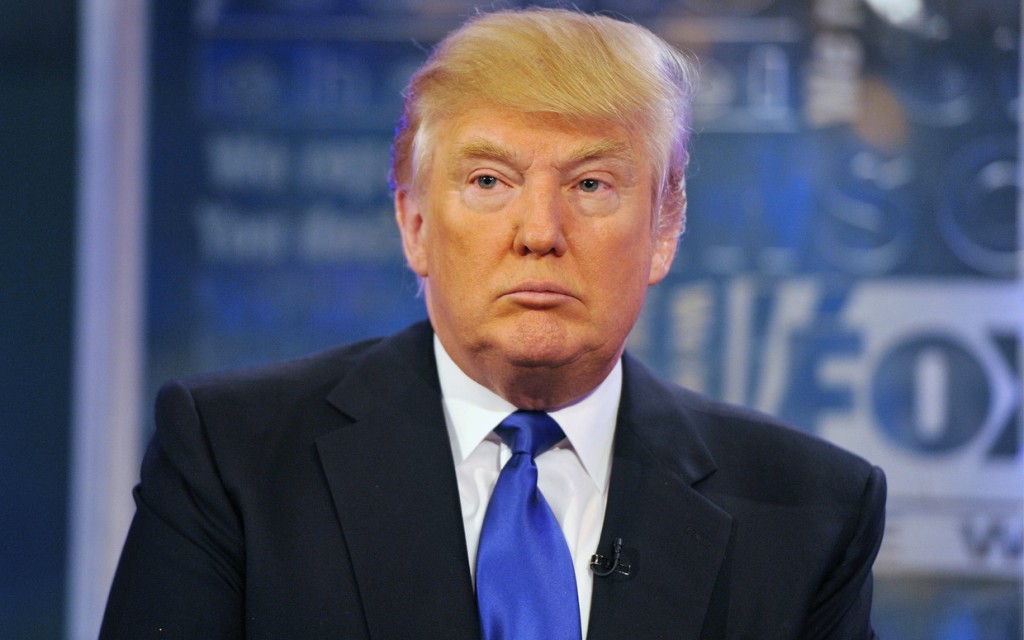
Despite his vociferous claims to the contrary, Donald J. Trump may be one of the worst dealmakers in modern politics.
Proof that Trump’s not the guy you’d want negotiating a deal on your behalf is in the pledge he made last September to the Republican National Committee. Trump promised the Republicans he will not run as a third-party or independent candidate against whoever might eventually be the GOP’s nominee for president of the United States.
Getting nothing in return, such as a promise that he would be the party’s nominee if he won the most delegates even if he comes up short of the 1,237 normally required to secure the nomination, Trump gleefully affixed his signature to an oath dictated by none other than the GOP establishment. So much for standing up to elites.
Trump’s pledge not only obligates the presumed billionaire to refrain from running as a third-party candidate, it also obliges him to endorse the Republican nominee, not matter who that may be. In exchange for his concession, Trump negotiated nothing for himself—and likewise, nada for those who have staked their claims against the party establishment in favor of him.
Now, as House of Representatives Speaker Paul Ryan suddenly issues stately demurrals declining establishment-GOP pleas for him to run as a third-party candidate for the sole purpose of stymying frontrunner Donald Trump, the latter man is stuck under the weight of his own pledge. Meanwhile, Ryan waxes suspiciously Reaganesque about the sun rising over America. (Methinks thou doth protest too much, Mr. Speaker.)
Prior to signing his pledge, Trump had Republican Party leaders terrified that he might run as a third-party or an independent candidate. He had them scared you-know-what-less the he’d steal away voters who might otherwise vote for an establishment nominee if they didn’t make him happy.
Yet Trump inexplicably forfeited what had been a diabolically potent instrument of leverage against the Republican Party. At the very moment his criterion for keeping a Trump third-party or independent run at bay—at the very moment his stipulation that he must be “treated fairly by the Republican Party” hung most like a sword of Damocles dangling over the GOP’s collective head, Trump fumbled. He signed their lopsided pledge and gave them his power to negotiate further. Trump got nothing for his signature, while the GOP got everything.
Back then, few realized that it would ultimately be the party itself looking at an array of options to usurp Trump even if he becomes the GOP candidate with the most delegates—even if he gets the 1,237 majority-number of delegates. What’s making such a turn of events possible? You guessed it, Donald Trump’s pledge of allegiance to the Republican Party.
There has been a great deal of open talk inside the party of late about forcing a “contested” convention to stop Trump. Shying away from the term “brokered convention,” folks like top GOP strategist and former Mitt Romney adviser, Stuart Stevens has cited the possibility of a “deadlocked” convention as a potential means of stopping Trump.
If tough-guy Trump had negotiated language that read something like: “…unless I am treated unfairly by the party, I pledge not to run against the Republican Party’s presidential nominee..,” today he would have wide latitude to run against a GOP nominee should the convention in Cleveland surreptitiously turn out a candidate other than him.
But Trump failed to negotiate any language into the pledge that would allow him to run without breaking his promise. Why not? Was it the pressure of being the frontrunner in a party that didn’t want him? News that a “Trump takedown” was being organized by establishment Republicans had made headlines just four days before the candidate declared his loyalty to the party by signing the pledge.
The way he negotiated the terms of his pledge, it is literally impossible for Trump to run outside the Republican Party, whose establishment now stands poised to reject his candidacy at its convention—or even run a powerful third-party candidate against him—without looking like a big, fat welcher.
Thanks to his own negotiating strategy, Donald Trump may only be able to keep running for president after the convention in July either as a pledge-breaking, third-party (or independent) would-be White House usurper.
Alternatively, he could keep his pledge and continue as a newly minted and fully neutered GOP-establishment nominee running against Hillary Clinton and a third-party nominee handpicked by what will by then be the former Republican establishment. Needless to say, that would all but ensure the Democrats a win in their bid to retain the White House.
Trump told ABC News’s George Stephanopoulos last Sunday that because there had been so many Republican candidates early on, the party should give him a pass on the rules that require a majority of delegates to win the nomination.
Even though the rules call for 1,237 delegates to win the nomination, Trump wants the GOP to let him have it with as few as 1,100 delegates. Now that sounds like a good deal for Trump! So, why didn’t he negotiate those terms when he had the chance—before he signed a pledge that gave away the one thing the GOP wanted from Trump?
“It’s very unfair because of the fact that there’s so many candidates and so many candidates are grabbing delegates,” Trump told Stephanopoulos.
Good luck negotiating with Mexico to pay for your little wall, Mr. Trump.
According to CNN, Trump said after signing the pledge that in exchange, he got a verbal “assurance that I will be treated fairly” from Republican National Committee Chairman Reince Priebus.
But wouldn’t a good negotiator get an assurance like that in writing—you know, the way the RNC got Trump’s signed guarantee that he won’t run against its nominee down on paper?
Read it for yourself. Here’s the text of the wannabe negotiator-in-chief’s pledge, which covers all the bases the GOP establishment wanted and exactly nothing about fair treatment for Donald Trump:
I, [Donald J. Trump], affirm that if I do not win the 2016 Republican nomination for President of the United States I will endorse the 2016 Republican presidential nominee regardless of who it is. I further pledge that I will not seek to run as an independent or write-in candidate nor will I seek or accept the nomination for president of any other party.
















The pledge isn’t legally binding.
Hmmm Sure looks like it.
http://www.mrctv.org/blog/report-trump-will-pledge-support-gop-pres-nominee
And such a pledge lulls the RNC into a false sense of security. Remember, Trump has used the system to file bankruptcy four times. That legally allowed him to avoid keeping promises to repay millions of dollars in loans. I don’t think he will have any problem breaking a nonbinding pledge to a group of people who are gunning for him like the RNC is doing.
Richard Winger is right. That “pledge” is not binding. It is not a valid contract. Just to name one problem, there is no consideration specified for Trump. He gets nothing in return for his promise. An enforceable contract has to include some kind of consideration on both sides, some desirable benefit mentioned in the wording of the contract.
Please… he’s an amazing negotiator and you saying otherwise smacks of jealousy and bad faith.
everybody wants something, thats How we start negotiating but how do you nego with people when the only thing they want is you out!!!!
Shame on me, the author of the All Out Poltics column, for not making it clearer in this installment that while Trump’s pledge may not be a binding legal contract, it is a pledge. He put himself in a box. If and when he runs against the Republican nominee, he may only do so as a pledge-breaker. My point is that he could have demanded some kind of a pledge from the party at the same time he signed it as part of the same document, but he didn’t. (T. Senzee)